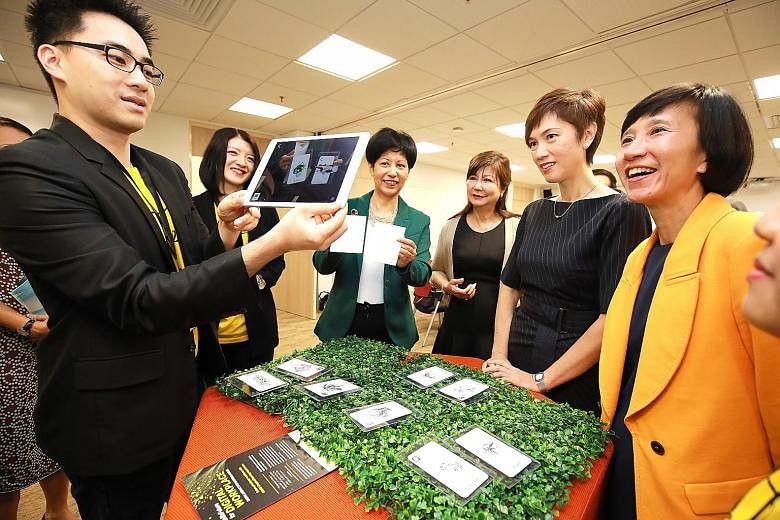Banks are responding to the threat of technological disruption by rolling out new programmes that aim to equip staff with new skills, Second Minister for Manpower Josephine Teo noted yesterday.
Ms Teo cited the Professional Conversion Programme (PCP) launched at United Overseas Bank (UOB) yesterday as one such initiative and a good signal that the financial service sector is serious about upgrading to meet the challenges it faces.
"The financial service sector remains an important part of our economy and 80 per cent of the PMETs (professionals, managers, executives and technicians) they hire are locals," she said at the launch at UOB Tampines Centre.
"What we'd like to be able to do is through programmes like the PCP, help them retain a very strong Singaporean core even as they go through the process of transformation."
UOB's first PCP is a course on digital skills in areas such as design thinking, customer journey design, channel management, and scenario analysis and planning.
The PCP scheme encourages companies to work with government agencies and private sector trainers to develop mid-career courses for staff.
UOB's PCP was developed in collaboration with Workforce Singapore, the Monetary Authority of Singapore and The Institute of Banking and Finance.
Each course will be conducted through classroom learning, workshops and on-the-job training, and will take between three and 12 months for employees to complete.
UOB's 900 customer-facing staff members from its network of branches islandwide will be enrolled in the programme over the next 18 months.
"The PCP will supplement the programmes we have been running over the past three years to help our colleagues experience, understand and apply emerging technologies for our customers' benefit," said UOB's head of group channels and digitalisation, Ms Janet Young.
"Our branch colleagues will also be able to use their enhanced digital skills to help guide our customers to embrace the benefits that technology can add to their lives."
UOB will hold more courses under the PCP to include areas such as risk management and wealth management for other functions in the bank in coming months.
The PCP has been gaining momentum and there are now 87 PCPs across 34 sectors, Ms Teo said.
Senior Minister of State for Finance Indranee Rajah added that such programmes are important for the financial service sector here, which has to be at the forefront of developments in order for Singapore to stay ahead.
"You can see the technology wave is coming and it's transforming big things and also the small ways that people transact. The key is to make sure that people working in the financial sector are able to keep up with that. Employees themselves have to have a mindset of being open and not being afraid of it, and to embrace it."



